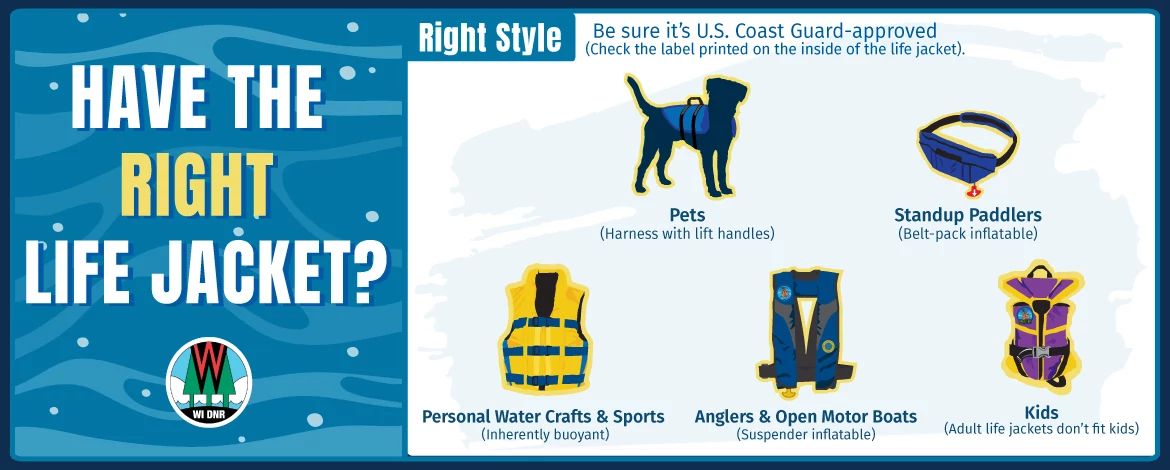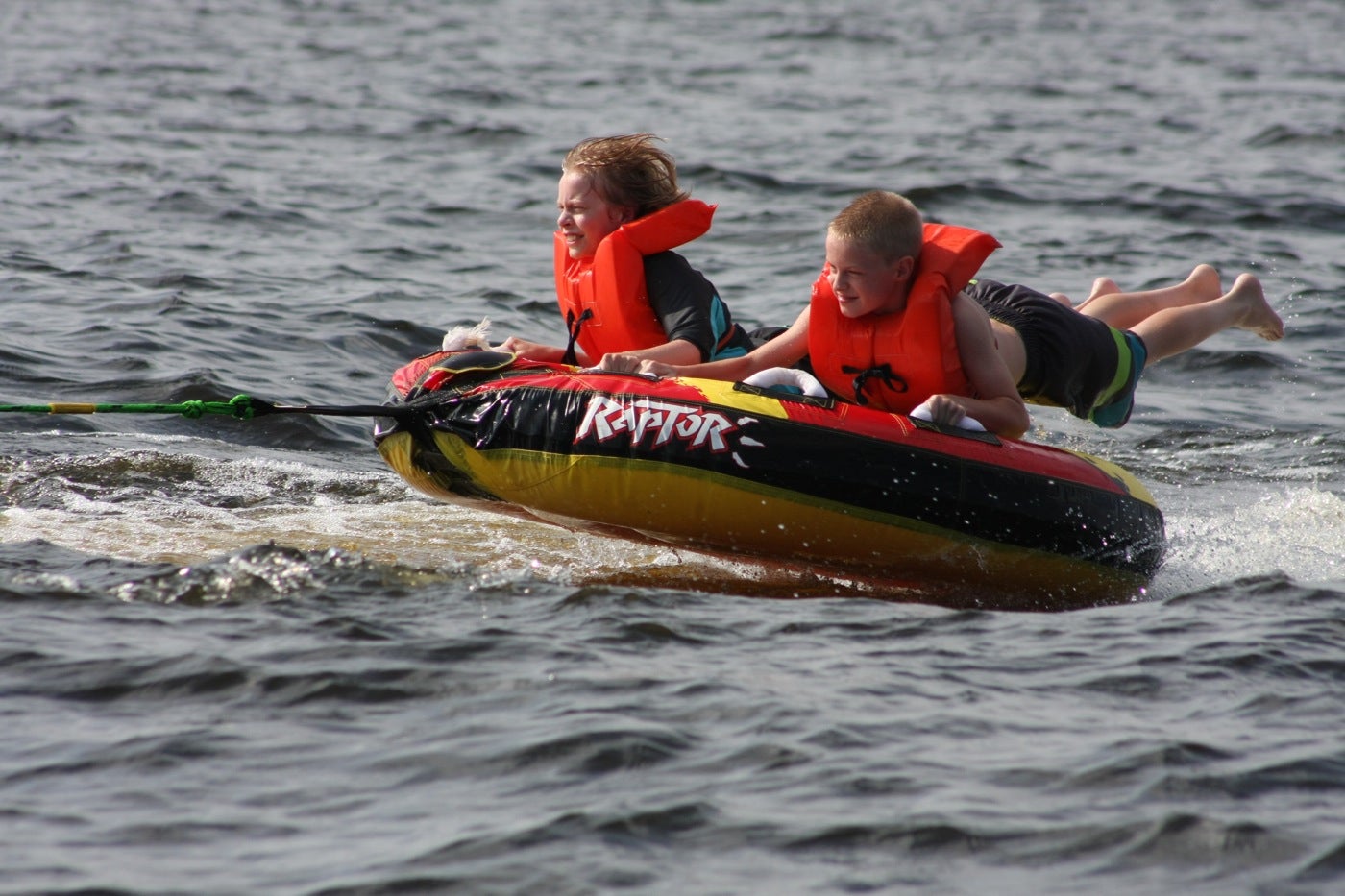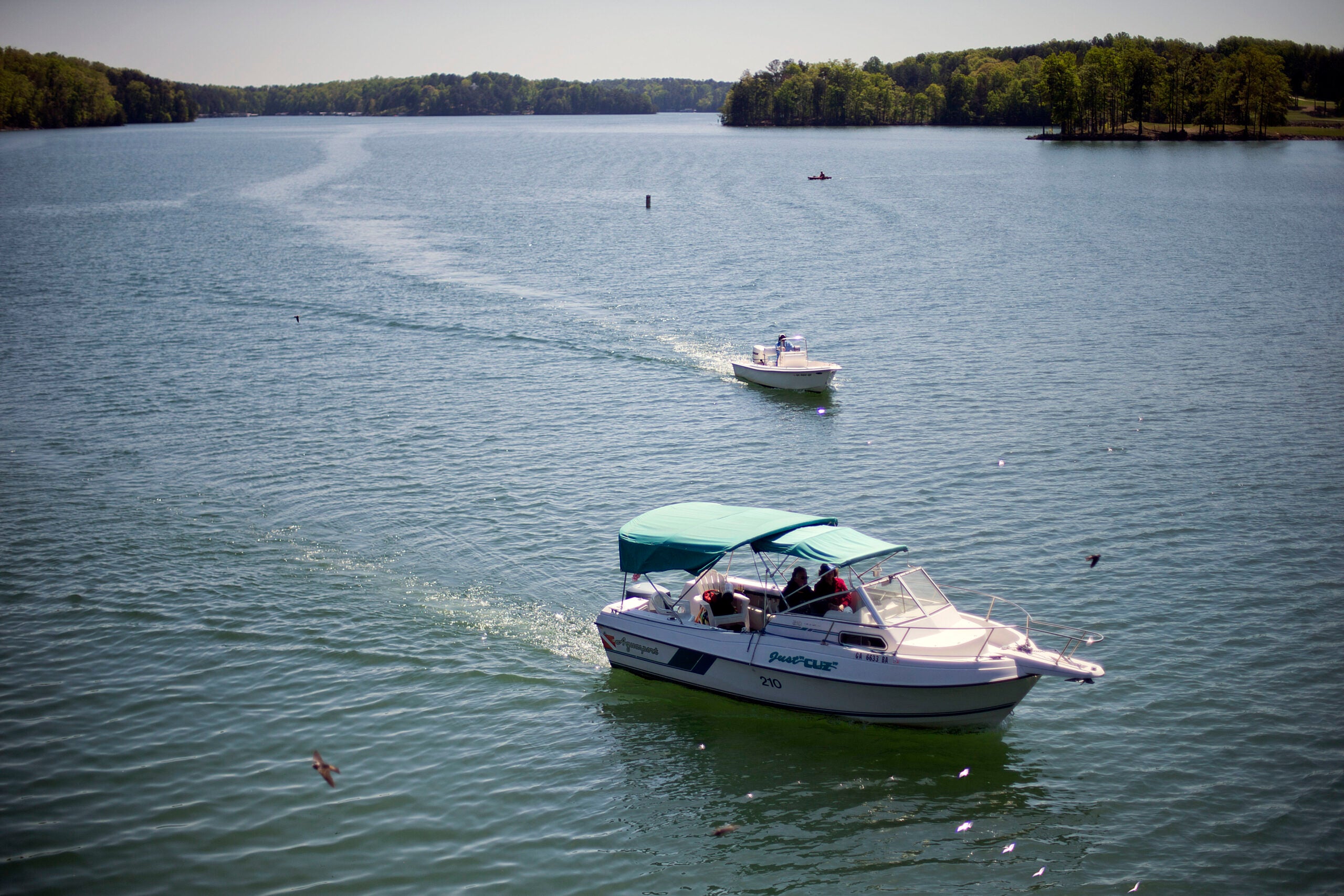Memorial Day weekend is typically the kickoff to boat season for Dells Watersports, a family-run business that rents about 50 motorized watercraft on three lakes near the Wisconsin Dells.
Co-owner Kathy Zowin says it’s a little slower this year with a stormy forecast for Sunday and Monday. Still, Zowin was busy booking pontoon rentals and fielding phone calls Thursday afternoon.
To ensure everyone they rent to takes the responsibility of boating seriously, Zowin said drivers have to watch a six-minute boater safety video. Staff on the dock walks drivers through the features of the boat and how it works before they jet off. Dells Watersports also makes sure to have eyes on the water.
Stay informed on the latest news
Sign up for WPR’s email newsletter.
“As soon as we start getting busy, we actually have just an employee out there watching everybody to ensure that they’re following the state boating laws,” Zowin said. “So we do our very best with trying to keep everyone safe, on busy days or even slower days.”
Those safety precautions can go a long way, especially when waterways get crowded.
Darren Kuhn, boating law administrator for the Wisconsin Department of Natural Resources, said outdoor recreation nearly doubles on holiday weekends.
Kuhn said the most important piece of safety equipment is a life jacket. Federal law requires one for every person on board, and while the law doesn’t require them to be worn for people over age 12, the DNR strongly encourages boaters to have them on.

Engine cut off switches are another fail safe the DNR recommends boaters use.
Those switches — usually worn around a boater’s wrist — automatically shut off a boat’s motor when the driver is away from the wheel.
“What we’re starting to see more — and more around the nation — are people being thrown off the boats, either accidentally or hitting big waves or falling off the captain’s chair because of the weather and the water conditions that they’re in,” Kuhn said. “As a result, the boat keeps going.”
Keeping an eye on the weather is also key. Kuhn said weather in Wisconsin can change rapidly and boaters need to pay heed to the forecast and delay boating excursions if bad weather is on the way.
For those born after Jan. 1, 1989, a boat safety class is required to operate a motorboat.

DNR: Leave the drinking at the dock
For boaters looking to kick back with an adult beverage, Kuhn says it’s best to leave the drinking at the dock.
“Drinking and boating have no place together,” he said.
“Alcohol affects people a lot differently on the boat than it may sitting on the dock,” he continued. “Between the waves and the wind and the heat and the engine noise, all that affects the body and the alcohol … What may be a safe limit for somebody on the dock is not going to be the same safe limit that’s on the boat.”
Kuhn said to treat boating the same way as driving a car — designate a driver, and know that the captain is responsible for everyone on the boat.
Dells Watersports has a zero tolerance policy, Zowin said, adding that the designated driver gets a wristband and signs a waiver agreeing to stay sober.
“We do keep an eye on everything and if somebody is acting in any way impaired, they do have to come back to the dock and lose their rental time,” she said. “Fortunately, it hasn’t happened very often. But occasionally, people have had to be escorted back to the dock.”
Kuhn said people on motorboats should also look out for swimmers and people doing paddlesports like kayaking, canoeing and paddle boarding.
“Be responsible, be respectful of others’ uses. Watch where your wakes are going, watch the level of the music,” Kuhn said. “While you may not enjoy kayaking or paddle boarding, they might not enjoy jet skiing … We all need to share the water together.”
Wisconsin Public Radio, © Copyright 2025, Board of Regents of the University of Wisconsin System and Wisconsin Educational Communications Board.


